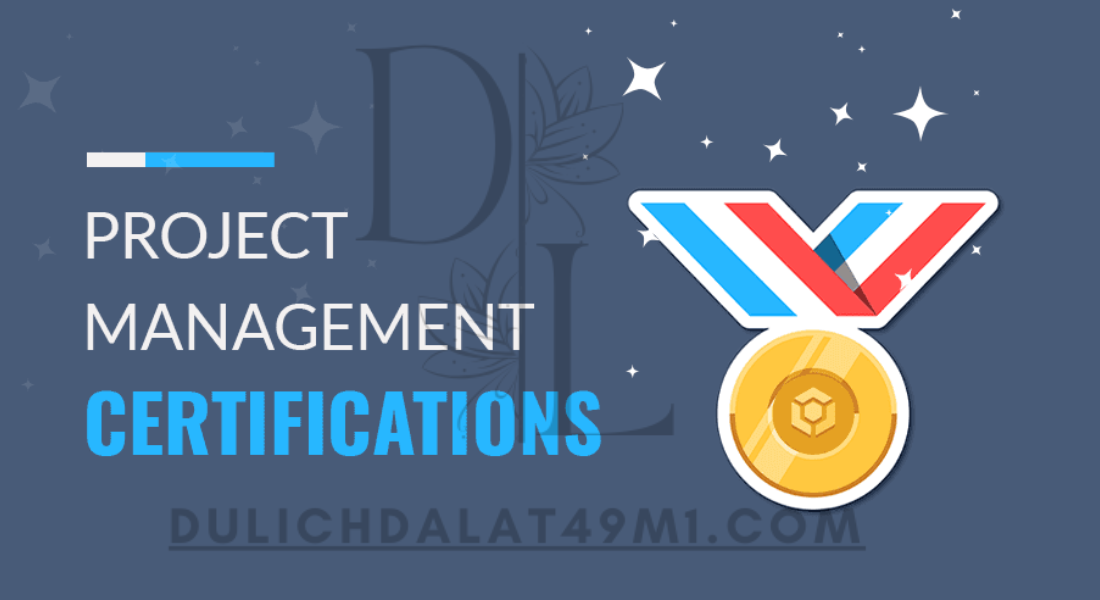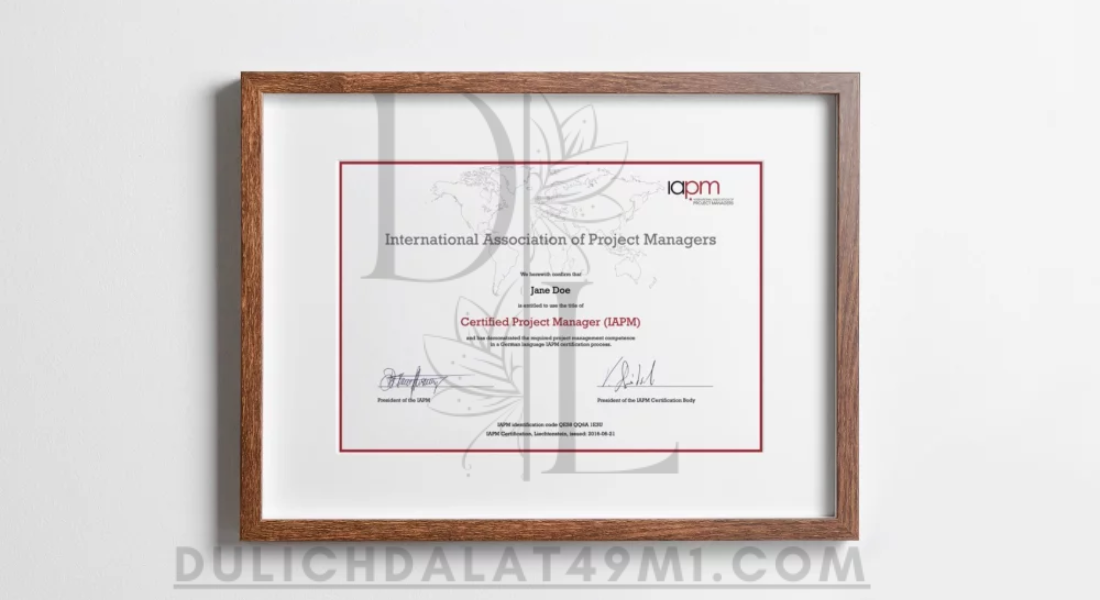Introduction:
In today’s competitive job market, project management is an essential skill that many industries demand. Whether you’re aiming for a leadership role or simply want to enhance your skillset, obtaining a project management certification can significantly improve your career prospects. With the right project management certification, you not only validate your expertise but also boost your confidence in leading projects successfully. This comprehensive guide will walk you through the importance of project management certification, the various types available, the steps to get certified, and how it can help you succeed in your professional journey. Gaining certification showcases your commitment to excellence, enhances your marketability, and opens up new opportunities in diverse sectors like IT, healthcare, construction, and finance.
Investing in a project management certification is a strategic move that aligns with the increasing demand for skilled project managers who can meet the challenges of complex projects and tight deadlines. Whether you’re looking to move into project management or solidify your current role, certification can set you apart as a credible and skilled professional.
Why Project Management Certification Matters
Project management certification is more than just a credential; it’s a powerful tool that sets you apart in the workforce. Whether you’re an aspiring project manager or looking to enhance your existing skills, this certification can be a game-changer. Below are several reasons why you should consider pursuing project management certification:
- Career Advancement: Project management certifications increase your chances of moving up the corporate ladder. Many employers require or prefer certified professionals for higher-level roles due to the specialized skills they bring to the table. For individuals aiming to become project directors or program managers, holding a certification is often a stepping stone toward such leadership roles.
- Skill Enhancement: A project management certification program equips you with critical skills such as time management, budgeting, and risk assessment. These skills are invaluable across various industries, from construction to IT. Certification programs teach you how to break down complex projects, manage cross-functional teams, and leverage technology for seamless project execution.
- Increased Earning Potential: Studies consistently show that certified project managers earn more than their non-certified counterparts. By investing in a project management certification, you position yourself for higher-paying opportunities. According to PMI’s Earning Power: Project Management Salary Survey, PMP-certified project managers report 20% higher salaries compared to those without certification.
- Industry Recognition: Certification from well-respected organizations like the Project Management Institute (PMI) provides industry-wide recognition. This establishes credibility with employers and clients, reassuring them of your competency and dedication to maintaining high project standards. Such recognition opens doors to project management positions in top-tier companies around the world.
Types of Project Management Certifications
Several types of project management certifications exist, each catering to different levels of experience and career goals. Some certifications are more specialized, while others are general and widely applicable. Let’s explore the most prominent options:
Project Management Professional (PMP) Certification
Offered by the Project Management Institute (PMI), the PMP certification is the gold standard in project management. It is recognized globally and demonstrates that you have the experience and knowledge required to lead and direct projects. To obtain this certification, you need to meet specific eligibility requirements and pass an exam. PMP holders are skilled in initiating, planning, executing, controlling, and closing projects effectively. The certification is ideal for project managers looking to validate their abilities to manage complex projects and lead diverse teams.
Certified Associate in Project Management (CAPM)
Also offered by PMI, the CAPM certification is designed for entry-level project managers or those interested in entering the field. While it requires less experience than the PMP certification, it still demonstrates a solid foundation in project management principles. The CAPM credential is perfect for recent graduates or those switching careers and seeking to establish themselves in project management.
PRINCE2 Certification
PRINCE2 (Projects in Controlled Environments) is a project management method developed in the UK and is widely recognized in Europe and internationally. This certification offers two levels: Foundation and Practitioner. PRINCE2 emphasizes structured processes and clearly defined roles and responsibilities, making it ideal for projects requiring high levels of control and governance. The PRINCE2 Practitioner level prepares candidates to tailor projects according to specific organizational needs and complexities.
Agile Certified Practitioner (PMI-ACP)
For project managers who work in Agile environments, the PMI-ACP certification demonstrates expertise in Agile principles and practices. This certification is ideal for professionals who manage projects that require flexibility and adaptability, such as those in IT and software development. The PMI-ACP validates your ability to respond quickly to changing project requirements, enhancing your profile as an adaptable and skilled project manager.
Certified ScrumMaster (CSM)
If your work involves managing Scrum teams, the Certified ScrumMaster (CSM) certification may be the right choice. Scrum is a specific Agile framework used in project management, and the CSM certification equips you with the tools to lead Scrum teams effectively. Earning this certification can help you understand team roles, events, and artifacts, enabling efficient project delivery in Agile environments.
Steps to Obtain a Project Management Certification
The process to earn a project management certification varies based on the type of certification you choose. However, there are common steps you’ll follow, regardless of the certification you pursue:
- Choose the Right Certification
The first step is determining which certification aligns with your career goals. If you’re new to project management, a CAPM or CompTIA Project+ certification may be ideal. If you have more experience, you might pursue the PMP, PMI-ACP, or PRINCE2 certification.
- Meet Eligibility Requirements
Different certifications have different eligibility criteria. For example, to qualify for the PMP certification, you need to have a certain amount of project management experience and education. Make sure you meet the requirements before moving forward.
- Prepare for the Exam
Most project management certifications require passing an exam. Preparing for these exams often involves studying a specific body of knowledge and sometimes taking preparatory courses. Many training providers offer boot camps, online courses, and workshops to help you prepare. Studying sample questions and taking practice exams can boost your confidence and readiness.
- Take the Exam
After preparing, you can schedule your exam. Be sure to check the exam details and format before the test day. Some exams may be online, while others may be in-person, depending on the certification and provider. Ensure you understand the exam format, question types, and time limits.
- Maintain Your Certification
Once you’ve earned your certification, it’s essential to maintain it. This typically involves earning continuing education credits or renewing your certification every few years. Staying updated with the latest project management trends through professional development units (PDUs) helps keep your certification current and relevant.
How Project Management Certification Can Help You Succeed
Obtaining a project management certification can have a profound impact on your career. Here’s how:
Better Job Opportunities
Certified project managers are in high demand across industries. Whether you’re in IT, construction, healthcare, or any other field, employers are always looking for professionals who can deliver projects on time, within budget, and to a high standard. With a certification, you position yourself as an expert in the field, making you an attractive candidate to potential employers.
Enhanced Leadership Skills
Project management certifications teach you how to lead teams effectively. By learning how to manage resources, communicate with stakeholders, and motivate team members, you will enhance your leadership abilities, which is crucial for career progression. Certified professionals have a deeper understanding of team dynamics, which leads to stronger collaboration and better project outcomes.
Improved Project Outcomes
Certified project managers tend to have better project outcomes because they have been trained to identify risks, manage time effectively, and optimize resources. These skills ensure that projects are completed efficiently and within scope, which is critical for business success. Companies benefit from smoother project workflows and fewer costly overruns.
Networking Opportunities
Project management certifications provide you with access to a network of professionals. Organizations like PMI host events, webinars, and conferences that allow certified individuals to connect with others in the field, share knowledge, and stay updated on the latest industry trends. These networking opportunities can lead to mentorships, collaborations, and career advancements.
Conclusion
Project management certification is an essential asset for anyone looking to advance their career in the field of project management. Whether you’re just starting out or seeking to enhance your existing skills, earning a project management certification can open doors to new job opportunities, career growth, and increased earning potential. With various certifications available to suit different levels of experience and industries, there’s a path for everyone to follow. Take the first step today to boost your career, enhance your skills, and become a certified project management professional.

